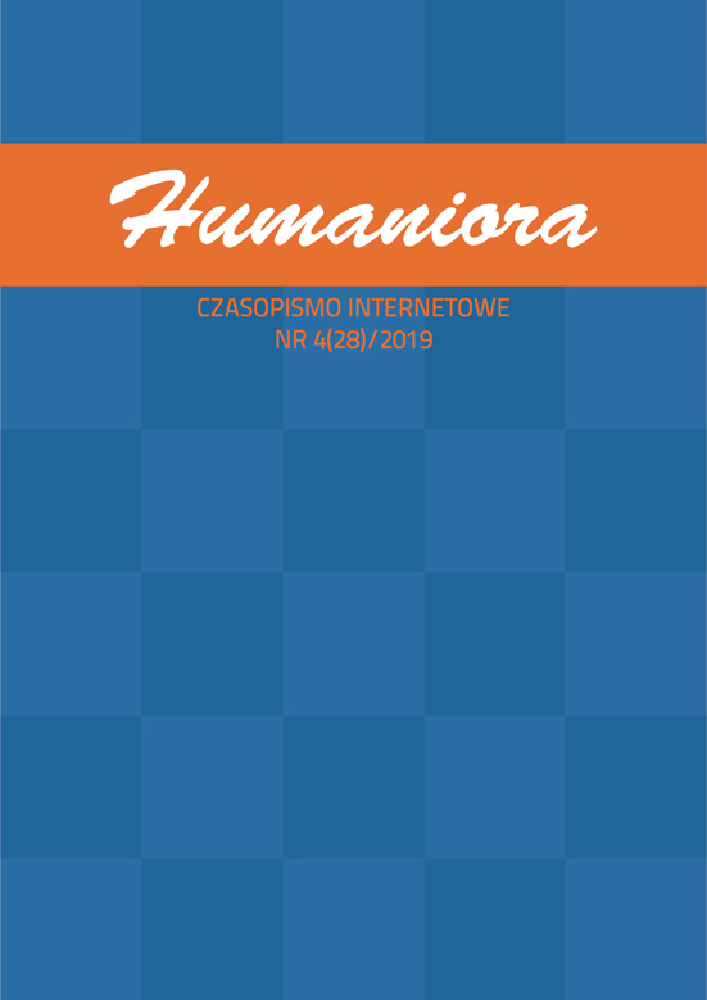Abstrakt
The pretext to write the essay was contact with paintings and installations of Lech Twardowski, which arouse involuntary anxiety. You can see in them impatience with those trends in the humanities that are too sure of their arguments and are reluctant to open themselves to possible changes and corrections. Meanwhile, it should be the opposite. This principle should apply not only to artistic activities, but to all conceptualization efforts, especially in theology. It is theology, the science that deals with God and spirituality, is especially called to review its projects because it deals with matters that by their nature escape all concepts. Today we are witnessing a real eruption of new theological concepts. A particularly intriguing proposition has recently been proposed by Peter Phan, who has an interesting formula of “multiple religious belonging,” which in his opinion adequately describes the state of religious consciousness of the inhabitants of the Far East. This kind of thinking can be seen in post-secularism.
Bibliografia
Augé M., Formy zapomnienia, tłum. A. Turczyn, Wydawnictwo Universitas, Kraków 2009.
Bal M., Wędrujące pojęcia w naukach humanistycznych, przekł. Maria Bucholc, Narodowe Centrum Kultury, Warszawa 2012.
Barthes R., Sade, Fourier, Loyola, tłum. R. Lis, Sic!, Warszawa 1996.
Bauman Z., Retrotopia, tłum. K. Lebek, Wydawnictwo Naukowe PWN, Warszawa 2018.
Belting H., Obraz i kult. Historia obrazu przed epoką sztuki, tłum. T. Zatorski, Słowo/ obraz terytoria, Gdańsk 2010.
Belting H., Antropologia obrazu. Szkice do nauki o obrazie, tłum. M. Bryl, Universitas, Kraków 2007.
Berger P.L., Further Thoughts on Religion and Modernity, „Society” 49/2012.
Berger P.L., The Desecularization of the Word. A Global Overwiev, w: The Desecularization of the Word. Resurgent Religion and World Politics, Eerdmans Publishing Company, Gran Rapids MI (1999).
Błoński J., To co święte, to co literackie, w: Między literaturą a światem. Pisma wybrane, t. II, Wydawnictwo Literackie, Kraków 2002.
Byrski M.K., Spotkanie z hinduizmem, Biblioteka Więzi, Warszawa 2016.
Certeau M. de, Wynaleźć codzienność. Sztuki działania, tłum. K. Thiel-Jańczuk, Wydawnictwo Uniwersytetu Jagiellońskiego, Kraków 2007.
Clooney F.X., Comparative Theology. Deep Learning Across Religious Borders, Willey- Blackwell, Oxford 2010.
Dillon M., Postsecular Catholicism: Relevance and Renewal, Oxford University Press, New York 2018.
Dupuis J., Chrześcijaństwo i religie. Od konfrontacji do dialogu, tłum. S. Obirek, WAM, Kraków 2003.
Elkins J., On the Strange Place of Religion in Contemporary Art, Routlage, New York 2004.
Hołówka J., Dziobkowski B. (red.), Filozofia Religii. Kontrowersje, Wydawnictwo Naukowe PWN, Warszawa 2018.
Franciszek Papież, przemówienie papieża podczas kongresu „Teologia po »Veritatis gaudium« w kontekście śródziemnomorskim”, 2019. https://www.deon.pl/religia/serwis-papieski/dokumenty/przemowienia-papieskie/art,301,franciszek-zaapelowal-o-rozwijanie-teologii-dialogu-i-akceptacji-dokumentacja.html [24.06.2019].
Hadot P., Filozofa jako ćwiczenie duchowe, tłum. P. Domański, Aletheia, Warszawa 2003.
Kearney R., Anatheism. Returning to God After God, Columbia University Press, New York 2010.
Leclercq J., Miłość nauki i pragnienie Boga, tłum. Małgorzata Borkowska, Tyniec Wydawnictwo Benedyktynów, Kraków 1997.
Mitchell W.J.T., Czego chcą obrazy?, tłum. Ł. Zaremba, Narodowe Centrum Kultury Warszawa 2013.
Obirek S., Uskrzydlony umysł. Antropologia Waltera Onga, Wydawnictwo Uniwersytetu Warszawskiego, Warszawa 2010.
Ong W., An Ong Reader. Challenges for Further Inquiry, eds. Th.J. Farrell, P.A. Soukup, Cresskill, NJ 2002.
Ong W., Gdzie teraz jesteśmy? Kilka podstawowych uwag kosmologicznych, tłum. S. Obirek, „Życie Duchowe” 2001, t. 28, Jesień.
Ong W., Interfaces of the Word. Studies in the Evolution of Consciousness and Culture, Cornell University Press, Ithaca 1977.
Pariser E., The Filter Bubble. What the Internet is Hiding from You, The Pinguin Press, New York 2011.
Phan P.C., Being Religious Intereligiously. Asian Perspectives on Interfaith Dialogue, Orbis Books, New York 2004.
Platon, Listy, tłum. M. Maykowska, PWN, Warszawa 1987.
Platon, Faidros. tłum. L. Regner, PWN, Warszawa 1993.
Rahner K., Basic Theological Interpretation of the Second Vatican Council, „Theological Investigation” vol. XX, tłum. E. Quinn, Crossroad, New York 1981.
Reale G., Per una nova interpretazione di Platone alla luce delle ‘dottrine non scritte’, Bompiani, Milano 2010.
Różewicz T., Niepokój. Wybór wierszy, PIW, Warszawa 1995.
Schlezak T.A., O nowej interpretacji platońskich dialogów, tłum. P. Domański, Kęty 2005.
Smith W.C., The Meaning and End of Religion, Mentor Books, New York 1964.
Turowski A., Malewicz w Warszawie. Rekonstrukcje i symulacje, Universitas Kraków 2002.
Turowski A., Obrazy-Energie, w: idem, Puste-Pełne. Empty-Full, XO-Art, Wrocław 2009.
Twardowski L., Projekty są po to, aby od nich odchodzić. Rozmowa Agnieszki Patały z Lechem Twardowskim na marginesie wystawy „Krawędź”, w: idem, Krawędź. The Edg, XO-Art, Wrocław 2016.
Twardowski L., Puste-Pełne. Empty-Full, Galeria Miejska we Wrocławiu, Wrocław 2009.
Licencja
Czasopismo oraz wszystkie zamieszczone w nim materiały są powszechnie dostępne i mogą być wykorzystywane do celów naukowych, edukacyjnych, poznawczych i niekomercyjnych bez konieczności uzyskiwania każdorazowej zgody autorów i redakcji. Nadesłanie artykułu do publikacji traktowane jest jako zgoda autora na udostępnienie swojej pracy i informacji w niej zawartych do powyżej wymienionych celów. W takich przypadkach należy jedynie wskazać źródło, z którego zaczerpnięte zostały informacje. Pobieranie opłat za dostęp do materiałów zawartych w czasopiśmie lub ograniczanie do niego dostępu jest zabronione.
Przesyłane do redakcji teksty muszą stanowić oryginalne prace, uprzednio nigdzie niepublikowane ani nie przedkładane innym redakcjom lub wydawcom. Autorzy nadsyłanych artykułów ponoszą odpowiedzialność za uzyskanie zezwoleń na publikowanie materiałów, do których prawa autorskie są w posiadaniu osób trzecich. Publikacja materiałów chronionych prawem autorskim jest możliwa pod warunkiem uprzedniego dostarczenia przez autora do redakcji pisemnej zgody właściciela praw autorskich.





